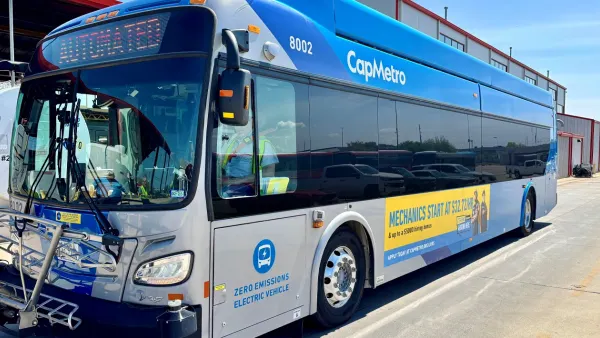Dive Brief:
- Sweden-based startup Mapillary will partner with Amazon Rekognition to help cities catalog and analyze parking sign data and eventually build a parking app.
- Mapillary will use Rekognition’s Text-In-Image feature to analyze the parking signs in Mapillary’s more than 360 million street-level images, collecting information on restrictions and parking availability that the firm says would take cities months to collect manually.
- According to TechCrunch, the data will be used to create a parking app in an undisclosed U.S. city, and Mapillary says it will add parking data to its automated maps and plans to expand text recognition across its platform.
Dive Insight:
According to data compiled by Inrix, a startup dealing with parking, Americans waste $73 billion a year looking for parking; in New York City, drivers can spend more than four days over the span of a year looking for parking. On top of that, Mapillary says that cities often have incomplete or conflicting information on parking availability. Washington, DC’s Department of Transportation, for example, says it gets one or two calls a day about conflicting signs, and this spring launched a campaign to log and replace confusing signs.
With Amazon’s machine learning system, Mapillary says that work could now be done with just a simple computer analysis. As cities try to adapt streets to accommodate alternative transportation — and look forward to a future with autonomous vehicles (AVs) — parking is increasingly in the spotlight.
Coord, an offshoot of Sidewalk Labs, has been digitizing curbs in major cities, collecting data on pickup/dropoff zones, parking spots and meters. Cities are seeking out information on, say, where to designate zones for ride-share vehicles to pick up or drop off passengers. When AVs come online and parking becomes less of a necessity, having a robust database of parking information could help cities redesign on the fly and re-allocate curb spaces.
Mapillary has been collecting crowdsourced photos and is adding geotagged information; in the spring, the startup released a platform to offer automated map data and images to GIS and city planning teams, which the parking sign data will be built into. Offering more data to cities — especially with photos that can show conditions city officials may not know about — will no doubt help planners adapt to a changing environment and analyze information.










